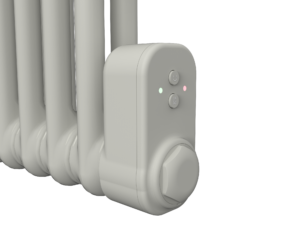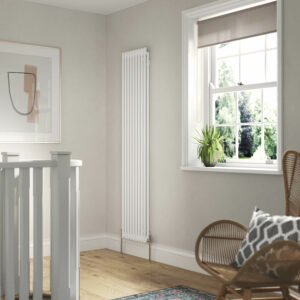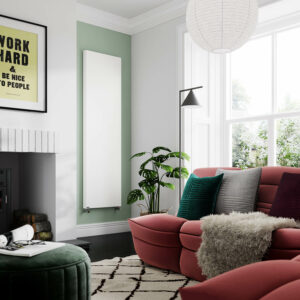Experiencing uneven heating in your home, with radiators warm upstairs but remaining cold downstairs, can be confusing and inconvenient, especially when the weather turns cold. There are some common causes behind this issue, so if you’re a homeowner looking to understand and address the problem effectively, you’ll want to read on.
By identifying the potential causes, from airlocks to boiler pressure issues, you’ll learn how to diagnose and fix these issues, ensuring a uniformly warm environment across all levels of your home. With a little bit of know-how, you can resolve your downstairs radiators not working and vice versa, so that you can enjoy consistent comfort throughout your house again.
Causes of Uneven Heating
Airlocks
An airlock in your heating system occurs when air gets trapped within the pipes, hindering the flow of hot water and consequently the heating efficiency. This issue can be more noticeable downstairs because air naturally tends to rise. If you’re noticing that your radiators are working upstairs but not downstairs, staying hot while the downstairs radiators remain cold, or if unusual gurgling noises are coming from the radiators, you might be dealing with airlocks. This disruption can prevent heated water from reaching the lower parts of your home, leading to uneven heating.
Blocked Pipes
Blocked pipes can occur from the accumulation of sludge or mineral deposits within the heating system. These blockages will restrict the flow of hot water, particularly affecting areas farther from the boiler, like downstairs radiators. Telltale signs of this issue include reduced water flow and a disparity in heating efficiency between floors. Regular maintenance and inspection can help identify this problem before it leads to more severe heating issues.
Faulty Valves
Faulty valves can significantly affect the distribution of heat in your home by impeding the flow of hot water into certain radiators. If some radiators are not working downstairs, and fail to heat up while others operate normally, it could indicate valve issues. Valves may become stuck or break over time, which means arranging a thorough check-up to ensure they are functioning correctly, allowing water to circulate properly throughout the heating system.
Boiler Pressure Issues
Boiler pressure is crucial for the efficient operation of your heating system. Low pressure can impair water flow, especially affecting radiators located at lower levels or farther from the boiler. If you notice that your boiler’s pressure gauge is reading lower than usual, it’s likely affecting your downstairs radiators to be cold. Ensuring that your boiler maintains the correct pressure is essential for efficient performance and even heating distribution.
Unbalanced Radiators
Unbalanced radiators occur when the distribution of hot water throughout the heating system is not even. This can cause the upstairs radiators to heat quickly while those downstairs lag behind. This imbalance often results from incorrect settings or adjustments to the radiator valves, which control the flow of hot water. If you notice significant temperature differences between the upstairs and downstairs radiators, this is a common sign of this issue. Balancing the radiators, by adjusting these valves, can help achieve a more even heat distribution across different floors of your home.
How To Fix Radiators Not Working Downstairs
Airlocks
To address any airlocks stopping your downstairs radiators from not working as they should, you’ll want to begin by bleeding your radiators to release any trapped air. This is a simple yet effective way to restore circulation within the heating system.
Start with the radiators located on the upper floors and progressively work your way down to the lower floors. When bleeding a radiator, use a radiator key to open the bleed valve slightly until water starts to drip out, indicating that the air has been expelled.
Blocked Pipes
If when investigating the problem it points to blocked pipes, system flushing is the recommended solution. Flushing a radiator involves forcing water through the heating system at high velocity to clear out any sludge, debris, or mineral deposits that have built up over time.
For a thorough clean, consider arranging a power flush, especially if you find this issue in more than one radiator. Arrange a professional to help with this, especially if the blockage is severe or the system is complex.
Faulty Valves
When faulty valves are suspected as the cause of your downstairs radiators not working, inspect each valve for proper operation. You may need to replace or repair any that are stuck or broken to ensure they open and close correctly.
This fix can often be done individually, but for more intricate systems or severe problems, seeking a professional’s help might be more appropriate.
Boiler Pressure Issues
Correcting boiler pressure issues involves adjusting the boiler’s pressure back to the recommended level, which is typically between 1.0 – 2.0 bars. You can repressurise your boiler using the filling loop under the boiler’s instructions. Monitoring the pressure gauge while doing this is crucial to avoid over-pressurising, which can also lead to heating inefficiencies.
If you aren’t confident about doing this yourself, arrange for a boiler specialist to review or check your boiler manual.
Unbalanced Radiators
Finally, to fix unbalanced radiators, you’ll want to balance the system by adjusting the radiator valves. This ensures that each radiator receives the appropriate amount of hot water. Start by fully opening all radiator valves and then gradually close them, beginning with the radiator closest to the boiler and moving to the one furthest away.
Each adjustment should be done while the heating is on, to accurately gauge the effect on heat distribution across your radiators.
Downstairs Radiators Cold Still? You Made Need A Replacement…
If your downstairs radiators remain cold after attempting these fixes, it may suggest another issue, possibly with the boiler itself. Contact a gas-safe engineer for a thorough assessment, and they will be able to investigate further and provide a solution, hopefully, one that doesn’t involve replacing your boiler.
If your boiler itself is fine, it could be that your radiators are due an upgrade instead. Why not explore our range of Stelrad products including all your radiator needs, from the latest electric radiators to stunning vertical radiators and much more. If you need any assistance, please contact us.







